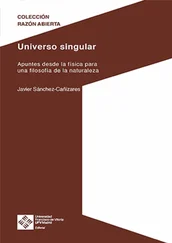The main door to the bathroom opened and a blast of awful techno music burst in and was promptly muffled by the closing of the door.
“Come on,” he heard someone say, banging on the door, “how long you going to be in there?” This meant he’d have to wait again, until the man gave up and went back outside, because the lawyer did not want anyone to hear him vomit.
As soon as he left the house, the lawyer felt he had made a mistake. Leaving his crying wife in the room as she retrieved her clothes from the floor, he stood outside the door for a moment. She had asked where he was going, asked him not to leave, repeated again and again that she had no idea what was going on, begged that he explain it all to her, but he had taken his attaché case and left without saying a word. He had to show her that he meant business. She had to understand that something had been broken. But as soon as he left the house, he wanted to return, and if she had come out after him maybe he would have gone back in. All the lawyer really wanted was to have his old life back again and he tried to find a reasonable explanation for her actions, something that would set his mind at ease, something he could live with. He refused to believe the worst and began thinking of possible alibis for her.
Starting up the car, he hoped she would not flee. The lawyer was scared that when he came back home, in an hour or two, he’d find that she was no longer there. That she’d taken the kids and some clothes and gone to her parents’ house. Maybe her lover would drive them. Now that she knew her illicit love had been exposed, what was to stop her from calling her lover? Maybe that’s exactly what she was doing at this moment, talking to him on the phone, bawling, but also reveling in the drama, feeling like her life had finally started to look like those Egyptian, Syrian, and Lebanese soap operas she loved. And he — being just as stupid as she — would speak the kinds of syrupy words that were supposed to calm her, promising to take care of her, to watch out for her, to lay his life down on the line for her. Let her go off with whoever she wants, the lawyer said to himself, wondering about the complex character of this lover who was learned in art and literature and Egyptian sap.
Before even pulling out of the garage, the lawyer called his wife. Not to talk, but to make sure that her line was not busy. He let it ring twice and hung up. It wasn’t busy. Then he thought she might be talking to her lover on the landline and he called that number, too, waited for it to ring once, then hung up and pulled out. She called right back, undoubtedly having seen his missed call. But he, of course, did not answer.
He drove slowly and tried to piece together the chain of events. The moment she came home, the look on her face when she told him about the battery on her phone. Had she planned everything? Was she that devious? He’d known her for seven years and had never noticed anything that would lead him to believe that she could plot her steps so cunningly. He recalled social events that she attended alone, parties she had said were work-related, visits to friends’ houses. Those were a weekly occurrence. But prior to the discovery of her love letter, the lawyer had never suspected they were anything beyond social calls. Maybe she really was telling the truth. Maybe the battery really had died and maybe she really had gone out with Faten for a cup of coffee and some gossip, as they often did?
The lawyer breathed deeply before dialing Faten’s number. It wasn’t late at night and he knew he could call the accountant’s house.
“Hello,” Faten answered. There was a trace of surprise in her voice, not on account of the hour or the identity of the caller, but because hardly anyone besides unsolicited callers used the landlines these days.
“Good evening,” the lawyer said, trying to make sure his voice didn’t waver.
“Good evening,” Faten said, her voice more playful.
“So that’s how it is, ah?” he said, trying to keep his voice as light and friendly as possible. “The two of you leave us at home and go out to cafés?” His heart was pounding.
“Half an hour is too much for you guys?” Faten said playfully and the lawyer’s body melted with relief.
“Who is it?” he heard Anton ask.
“Hold on a second. I’m putting Anton on,” she said, passing the phone to her husband.
The lawyer had to come up with something. “I was thinking that if the girls can go out for coffee, maybe we could do the same. What are your thoughts on a beer at the Ambassador?” he said, praying that Anton would refuse.
“I wish,” Anton said, “I just came home now with the kids. I took them out to eat. My dear wife is so busy she didn’t have time to make anything.”
“I knew I couldn’t count on you,” the lawyer said. “Never mind, we’ll do it next time. Yallah, good night.”
So she did meet up with Faten. There was no way she would ask one of her friends to lie on her behalf. The lawyer nearly turned his car around and went home, but he still couldn’t come up with a good explanation as to why she had lied about the letter. He drove out of the village and onto the wider streets of the main road, the one that had once linked Jerusalem and Bethlehem. He called Tarik and then realized that Tarik was actually the only person he wanted to see that night. The lawyer knew Tarik would not refuse. He detected a note of happiness in the young lawyer’s voice when he asked him, over the noise of Tarik’s television, “So, where do you usually go to drink?” Once they’d decided the where and the when, the lawyer hit the gas and flew through the empty streets, trying to remember just when it was that the gates to Bethlehem had been locked.
THE FUTON
The lawyer opened his eyes and was saddened by the fact that he’d lost the ability to cry. He wanted to go back to the village, to his parents’ house, his real home, not the rentals he’d lived in in Jerusalem and not the house he owned in Beit Safafa, which he had never called home, as though he had been doing nothing but sojourning in the city. He wanted to go back to his old room, the cold room he had shared with his three brothers, the thin mattress and the sheepskin that his mother would put under it for insulation during the winter. He missed the crispness of morning, the walk to school bursting with confidence, the knowledge that his homework was perfect and that it had been written out in elegant handwriting, the kind that made his parents proud. Too bad he hadn’t gone back to the village after school, too bad he hadn’t listened to his father, who begged him to return home.
The lawyer’s eyes fluttered open and then closed again. Lying in Tarik’s bedroom, he drifted in and out of sleep and thought that the first thing he would do when he gained control of his consciousness would be to send Tarik home, to his village. If it comes down to it, I’ll fire him, and make sure no lawyer in the city takes him on. He was sorry he had stood in Tarik’s way, that he’d convinced him to stay in the city and not go home, and he knew he’d done it in order to prove to himself that he had not been mistaken, that he’d been right to stay in Jerusalem. The lawyer recalled that Tarik had driven him in the lawyer’s car after the long night of drinking and that he’d wanted to take the lawyer back to his house but that he had refused. He did not recall how it happened that Tarik had given him his bed, but he imagined that the young lawyer had insisted that his boss take it, saying that he would sleep on the couch in the hall.
The lawyer’s throat felt sandy, his head striped with pain. Specific memories of the night dissolved in a murk of shame. He knew he had acted like a complete fool. He had drunk like he never had before and it was very likely he had embarrassed himself like never before, too. Certainly he’d never exposed Tarik to this kind of behavior. But what most concerned him was whether he had let anything slip about his wife’s letter, her lies, the book, and the real reason he had not wanted to go back to his house. The lawyer tried hard to remember the night, and he was able to summon many things, fragments and entire conversations from earlier in the evening, and he was pretty sure he had not said anything specific about his wife, and so he was inclined to let himself off the hook. He remembered picking Tarik up at his house and driving to a pub called Ha’sira and that Tarik had said it was his favorite place on the western side of the city. He also remembered how surprised he had been and the way he had laughed when Tarik led him into the place, which looked less like a nightspot and more like a storage room that stank of beer, sweat, and cigarettes.
Читать дальше












